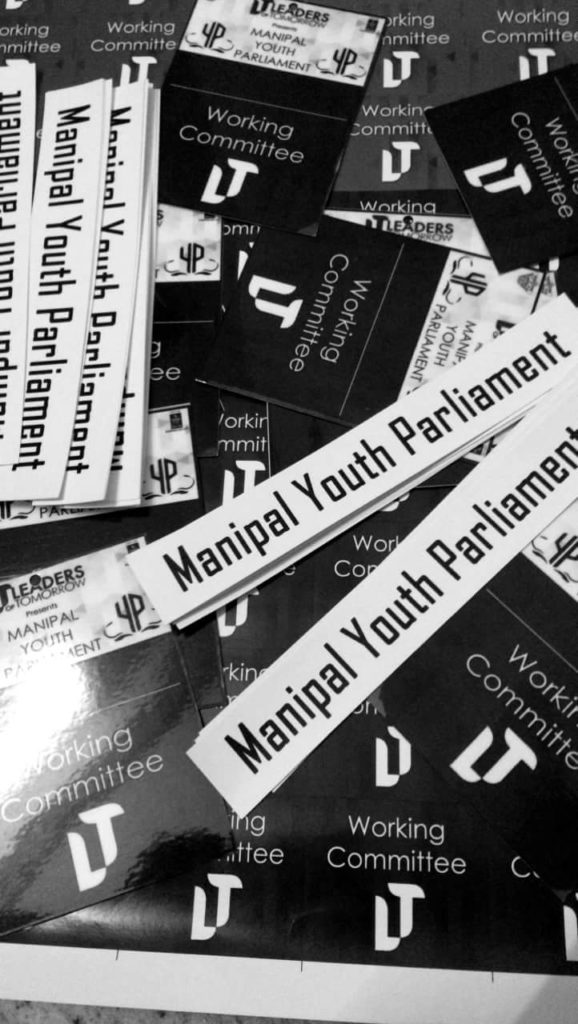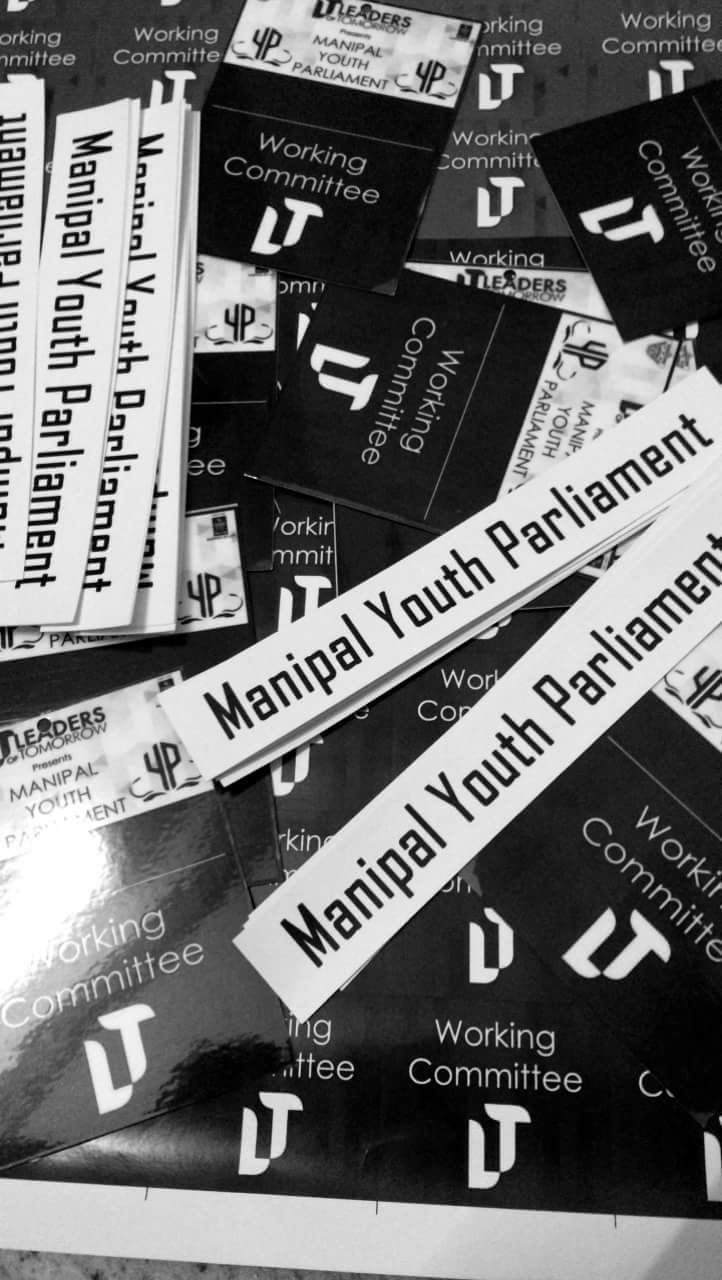
A lazy Sunday morning in Manipal was disrupted by the unusual sight of students in suits and kurtas, clothes which are distinctly un-pyjama like, and certainly not something expected at 8 in the morning.
Youth Parliament 2016, the annual simulation of political discourse organised by Leaders of Tomorrow, was held on Sunday, the 23rd of October, and took place over the course of the entire day.
Spanning a diverse range of politically significant moments in our country’s history, the three committees comprised a Joint Crisis Committee of the Research and Analysis Wing (RAW) and the Inter-Services Intelligence (ISI) focused on the agenda of the Kargil War, a Joint Cabinet Meeting of Indo-Pak diplomatic talks regarding the ongoing insurgency in Kashmir, LoC violations and nuclear proliferation, and a Moot Court of the State vs The People on the 2002 Gujarat Riots.
The Joint Cabinet Session, the largest among the three committees, was mainly composed of first years and first timers alike, and although it had sluggish activity throughout the day, the newly christened members of parliament were unabashed in their enthusiasm for debate. Considering the particularly strained relations between India and Pakistan, and the onslaught of criticism after the recent Uri attacks, the chair was expecting the committee to begin with inflammatory blame games that would gradually proceed onto bilateral discussions; funnily enough, however, the committee seemed like they were already ready to make peace and come to an agreement. The co-chairs Chetan Singh Rana and Dhruv Suri were quite relaxed with procedure, considering the relative inexperience of the participants, giving rise to an amusingly irreverent atmosphere, with sweets being thrown at cabinet members for good arguments, and a number of silly actions being undertaken. As expected with the colourful history India and Pakistan shares, there were several instances of cross country trash talk, and the historical context really shone through the Hindi speeches. The chief minister of Jammu and Kashmir won the award for best delegate for being unwavering in his stance towards the welfare of Kashmir.
The Moot Court was a mock reproduction of a courtroom scenario, recreating the events which unfolded following the infamous 2002 Gujarat riots, with the State on one side and the Concerned Citizens Tribunal opposing them. This relatively small committee, barely seven in number, was however, composed entirely of all experienced speakers, fourth years and members from the Literary, Debate and Quiz club. Debate went swimmingly, with both the People and the State equally well researched and level competitors. Debate for the first half was focused on the aftermath of the bandh imposed by the government body Vishva Hindu Parishad (or as they claimed, an organisation with a few government officials within it), which had led to the first outbreak of violence in the state, and the burning of the Sabarmati express. Things came to a head with the revelation of a video of senior police officers and a few BJP politicians boasting about their involvement in the Gujarat riots. The chair Harish Narasimhan was satisfied with the level of active debate and revealed that they had chosen this particular incident because Narendra Modi has always been a contentious figure, and adding him in the moot court would have encouraged research as there are a lot of articles about him available. Although the session culminated with the State being acquitted because of insufficient evidence, the Concerned Citizens Tribunal were declared the winners for being the better researched team.

The Joint Crisis Committees, comprising RAW and ISI, were by far the most eventful and brash of the three. The day’s events and updates were largely concentrated upon the circumstances surrounding the Kargil War between India and Pakistan, and the very real possibility of nuclear war at that time, which would have been the first of its kind since WW2. Following the events after the freeze date of 3rd May, 1999, when Kashmiri farmers spotted Pakistani militants crossing the Line of Control and occupying Indian ground, there were updates of nuclear material being found in Srinagar and a Pakistani aircraft carrying more nuclear weapons crash landing and detonating in Tiger Hill, located in Pakistan. The chairs of RAW, Abhishek Sarin and Rwik Kamilya, not particular sticklers for protocol, encouraged the participants to go bizarre with military strategies, but to ensure minimum civilian casualties. Sarin was pleased with the mix of first timers and experienced speakers and found that that they grasped the entire format of the debate quite well.
ISI, on the other hand, resorted to several egregious means of getting their way, including sending 15 women to the Chinese premier to seduce him and ensure China’s support, and bombing the Bangalore international airport through Al Qaeda and immediately issuing a statement offering their deepest condolences and promising to bring the culprits to justice. After careful consideration of both Plan of Actions, a decisive victory was granted to India, and the pithily named “Operation Too Cool For Nukes” was declared successful.
All in all, a good day’s work and a good day’s war.
-Anjali Mayne for MTTN

Leave a Reply
You must be logged in to post a comment.